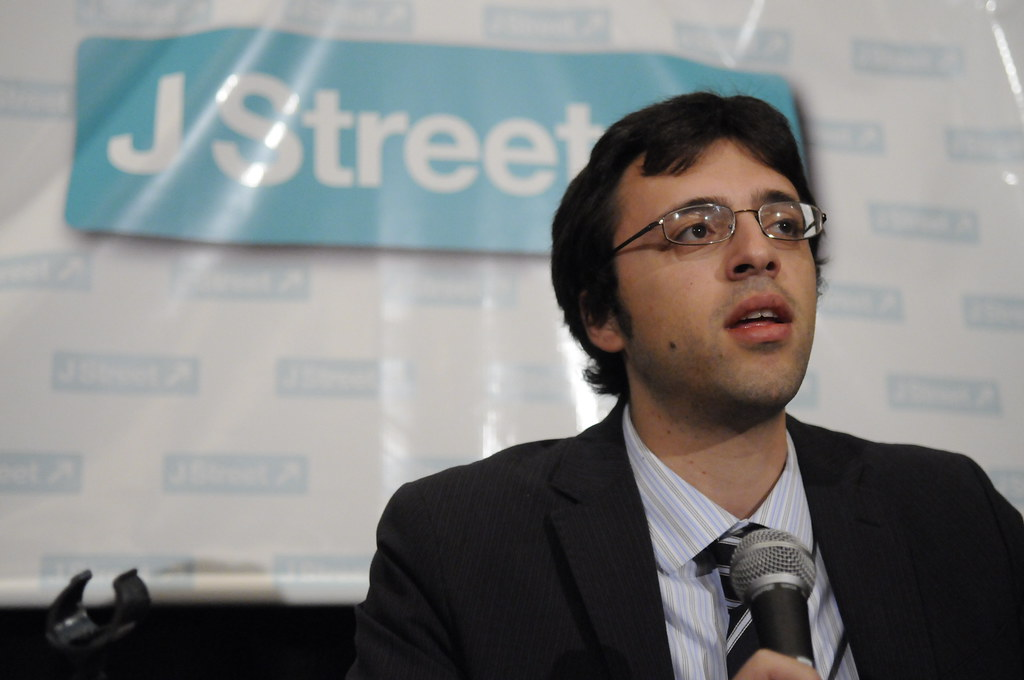In the latest effort to keep the reward loop for bad faith grandstanding on campus speech and antisemitism churning, right-wing actors are targeting prominent Jewish History professor Derek Penslar, who was tapped to co-chair* Harvard's recently announced taskforce on antisemitism.
I joined many of my colleagues who work in the arena of antisemitism and/or Israel or Jewish Studies in defending Penslar from these attacks. It's not because I necessarily agree with everything Penslar ever wrote (a statement I could make about anyone). Rather, it's because of the obvious true target here, for which Penslar was only a symbol: the broad swath of liberal Jews who are not wild-eyed anti-Zionists, who are not committed to the view that Israel's only role in the world is as demonspawn, but are clear-eyed about its flaws, insistent that the occupation is intolerable, and vocal that the trajectory Israel is on needs to change. For people like us, I think we can borrow from Frantz Fanon's philosophy teacher: "When you hear someone insulting Derek Penslar pay attention; he is talking about you."
Consider this piece by David Mikics in Tablet, which, while graciously conceding that Penslar is not himself antisemitic, pushes the thesis that Penslar is motivated by making the world safe for people who are.
As a member of the Nexus Task Force, [Penslar] is in fact one of the key academic activists leading the effort to sanction a wide range of anti-Zionist speech and teachings. (The Jewish studies petition defending Penslar’s appointment was organized by Nexus.) Officially, Jonathan Jacoby, the incoming director of Nexus, says that he doesn’t want to erase the IHRA, just supplement it. But evidence suggests that Nexus is already lobbying lawmakers to absolve anti-Zionists from any taint of antisemitism. Nexus recently hired Kevin Rachlin, formerly of J Street, to lead its D.C. office—a hire that suggests Nexus’ origins in the world of the Democratic Party’s top-down campaigns to reconcile its “big donors” with some of the party’s more hateful constituencies.
Again, I appreciate the acknowledgment that Nexus is not "officially" pushing to erase IHRA. But of course we're lying. And how do you know we're lying? Not because of a critical analysis of Nexus' actual offering on antisemitism -- no no no. It's because we're tied to J Street, of course -- and J Street, in turn, is naught but an effort to launder radical anti-Zionist hate into the Democratic mainstream (that this piece came out right at the same time as J Street took its most overt step yet towards reconsolidating towards the Democratic Party center is *chef's kiss*).
But this is the point: trying to nitpick around this or that passage from Penslar's work is missing the broader game. If you're a Jew who's sympathetic to Nexus, if you're a Jew who aligns with J Street, if you're a Jew who thinks that there's sadly purchase to calling the situation in the West Bank "apartheid" -- if you fall into any of these categories, all the insults being lobbed toward Derek Penslar are talking about you. That's the reality of the situation, and we need to pay attention to what's actually happening here.
* The other co-chair is Raffaella Sadun, a professor at Harvard's Business School. It's interesting we've heard essentially nothing about her even as Penslar's every jot and tittle is being scrutinized to death. As best I can tell Sadun's research has nothing to do with Jews or antisemitism; there's little doubt that Penslar is, along traditional dimensions, a much more natural choice to lead this committee.
To be clear, I don't think that makes Sadun an inappropriate choice to co-chair the committee. Leaving aside the possibility that she's deeply involved in these issues in her non-professional time, I actually think it's probably a good thing to have "lay" representation on these panels -- understanding how antisemitism effects persons who are not stewing in the hot house of Jewish or Israel Studies 24/7. For my part, the Jewish students who've expressed to me the most anxiety over the past few months are the ones who do not self-identify as particularly "involved" Jews -- they're buffeted by cross-winds of being confused and scared and uncertain if they have standing to be confused and/or scared. That isn't to say Sadun falls into that category either; only that a picture of Jewish life at Harvard which only considers the view of the Jews who are most tied into traditionally "Jewish" practices, organizations, or issues would be an incomplete picture.



